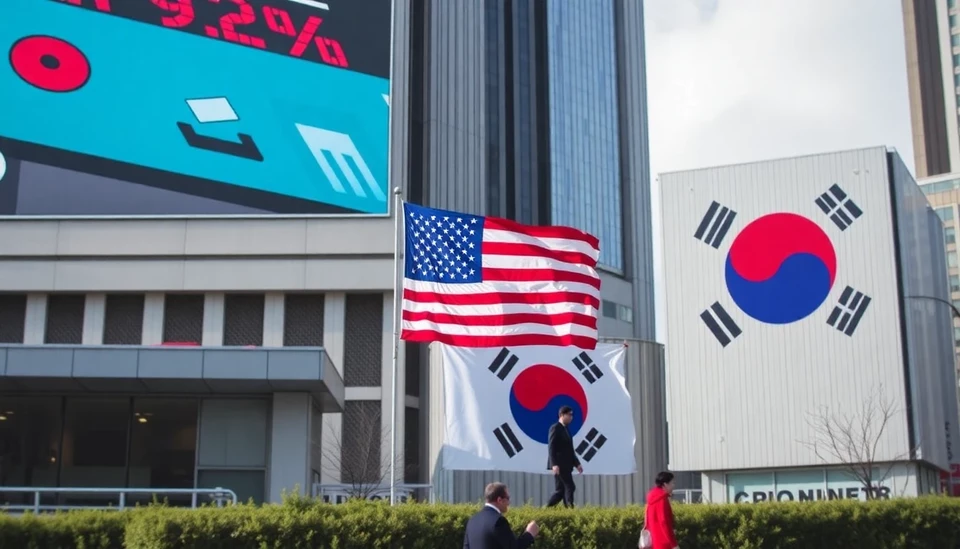
The Bank of Korea (BOK) has issued a stark warning regarding the potential implications of stronger-than-anticipated U.S. tariffs on imported goods. This unforeseen development has raised alarms about volatility in the domestic market, which may have a cascading effect on both local and global economies.
During a recent press conference, BOK officials highlighted that the newly enforced U.S. tariffs, aimed primarily at certain foreign goods, are likely to exert upward pressure on inflation within South Korea. The evaluation underscores the degree to which international trade policies can influence national economic landscapes, particularly for nations heavily reliant on exports such as South Korea.
The BOK's report indicates that the tariffs were not only more aggressive than initially expected but also their implementation could lead to increased costs for South Korean importers. This, in turn, is expected to filter down to consumers, possibly resulting in higher retail prices. The central bank has cautioned that these changes could disrupt South Korea’s economic recovery, which had shown promising signs in recent months, post-pandemic.
Furthermore, BOK officials indicated that the complications arising from the U.S. tariffs could also affect South Korea's export competitiveness in the global market. With major trading partners facing increased costs, the dynamic in trade agreements and negotiations may shift. The bank has reiterated the need to monitor the evolving situation closely.
In light of these developments, the BOK plans to conduct comprehensive assessments to gauge the longer-term impacts of the tariffs on various sectors of the economy. Their next monetary policy meeting will be focused on revising forecasts and adjusting their strategies accordingly to mitigate any adverse effects that may arise as a result of this trade policy shift.
As South Korea digs deeper into the repercussions of these tariffs, analysts and economists caution that heightened volatility should be expected. Stakeholders are urged to stay informed as the situation continues to develop and to prepare for potential changes in the economic framework driven by international trade dynamics.
The BOK's proactive stance in addressing these concerns emphasizes the importance of adaptability in economic policies, as well as underlines the intricate ties between South Korean economic health and global trade practices.
As markets brace for changing winds, all eyes will remain on the U.S. and its ongoing approach to tariffs, alongside how countries like South Korea navigate the implications of these policies in their domestic arenas.
#USTariffs #BankOfKorea #MarketVolatility #SouthKoreaEconomy #GlobalTrade #EconomicImpact
Author: Daniel Foster




